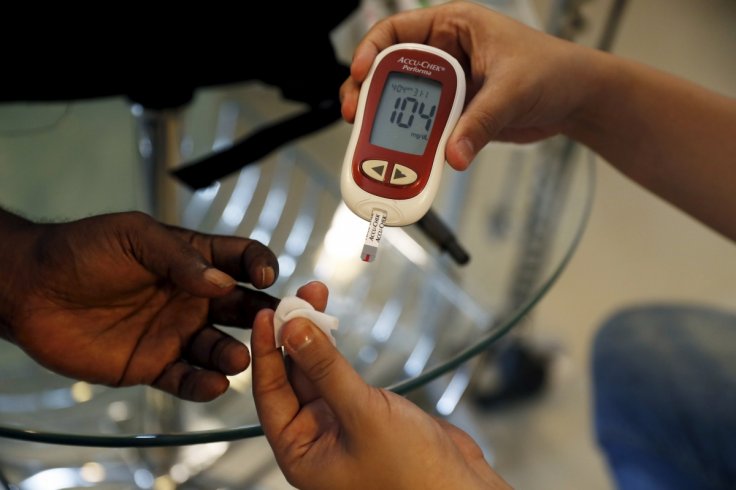
Alabama scientists have identified an early biomarker of Type 1 diabetes-associated beta-cell loss in humans, whose death is a key feature of the disease, reports say.
The biomarker -- microRNA-204 or miR-204 – are associated with beta cells in the pancreas that produces insulin, and their loss starts long before the diagnosis of Type 1 diabetes, Anath Shalev and his colleagues at the University of Alabama at Birmingham have found.
"Serum miR-204 may provide a novel approach to assess early Type 1 diabetes-associated human beta-cell loss, even before the onset of overt disease," Shalev said in the study published in the American Journal of Physiology-Endocrinology and Metabolism.
According to the finding, miR-204, which is highly enriched in human beta cells, is released by dying beta cells and becomes detectable in circulating blood. The biomarker plays a key role in regulating insulin production and other critical beta-cell processes.
MicroRNAs are also found in animal and plant cells, where they help control gene expression.
In the study, researchers showed that miR-204 was released by cultured rat beta cells after induction of cell death by streptozotocin.
The killing of beta cells in mice given streptozotocin led both to diabetes, as expected, and to a massive increase in serum miR-204 levels.
Type 1 diabetes-associated inflammatory cytokines, which induce beta-cell death, caused release of miR-204 from both cultured rat beta cells as well as primary human pancreatic islets.
To test miR-204 in humans, the researchers examined serum from people receiving autologous pancreatic islet transplantations. It was found that miR-204 levels in serum rose sharply, 20 to 40 minutes after islet infusion.
Serum miR-204 is elevated in children and adults with early Type 1 diabetes and in people with autoantibodies who are at risk for Type 1 diabetes, the finding in the paper "Serum miR-204 is an early biomarker of type 1 diabetes-associated pancreatic beta-cell loss," noted.
It was however not elevated in Type 2 diabetes or another autoimmune disease, the finding said. Its levels were in fact inversely correlated with remaining beta-cell function in recent-onset Type 1 diabetes.
"Having a non-invasive, straightforward method sensitive enough to detect early beta-cell loss -- especially prior to the diagnosis of Type 1 diabetes -- is critical in order to allow for any therapeutic intervention to be started as early as possible in the disease process and ideally before the majority of beta cells has been destroyed," Shalev, who is a professor in the UAB Department of Medicine's Division of Endocrinology, Diabetes and Metabolism, said.
This is useful because adults with Type 1 diabetes are often misdiagnosed when first found to have diabetes, he added.









